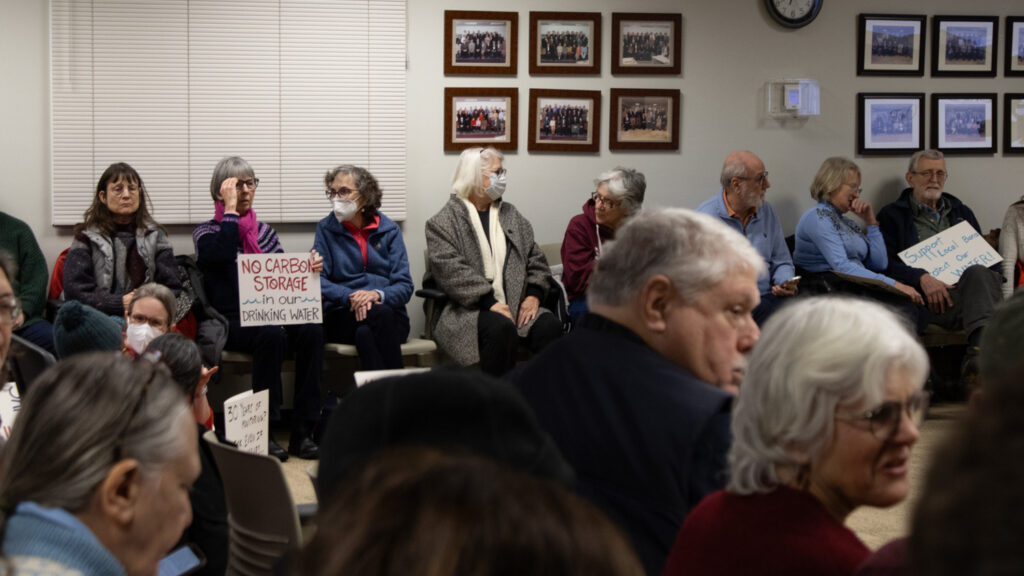CHAMPAIGN — Champaign County Board members voted Thursday night to approve a zoning ordinance amendment that will pause all carbon sequestration in the county for 12 months. The moratorium will allow the board time to develop a more comprehensive, and potentially permanent, ban.
Carbon sequestration is the process of taking carbon emitted during processes like those used during the production of ethanol, compressing it into a supercritical fluid and injecting it deep underground into porous rock formations, which abound in Illinois. This technology has been proposed as a solution for companies to limit their emissions and combat the effects of climate change. However, the risks posed by leaks have led many to question where, and if, it should be used at all.
Concerns about the safety of carbon sequestration projects under the Mahomet Aquifer, which provides clean water to about one million residents of east-central Illinois, have grown following two leaks at an Archer Daniels Midland facility near Decatur discovered last year. The facility, which is the first commercial carbon sequestration plant in the country, received a violation notice from the U.S. Environmental Protection Agency and halted its injection in October.
In Illinois, the SAFE CCS Act, which went into effect July 2024, outlines regulations for carbon capture and sequestration in the state, but it fails to implement protection for sole-source aquifers like the Mahomet Aquifer.
Dozens of community members came to the board meeting to support the moratorium. Six attendees gave public comments urging the board to protect their main source of drinking water. The Board’s 18-to-1 vote to approve the measure was met with applause.
Marcia Morrow, a lifelong resident of Savoy, became emotional as she recounted her family’s experience relying on a single well.
“I know the consequences of what it really looks like to not have water and if this gets contaminated,” she told IPM News after the vote. “It’s irreplaceable.”

Urbana Mayor Diane Marlin encouraged the board to approve the moratorium and thanked the community for rallying around this issue.
“There’s no reasonable alternatives to the aquifer,” she said. “So it’s incredibly important that we maintain the quality of the water in the aquifer and quantity for use today and for the future.”
During the meeting, board member John Farney, a Republican representing District 3, pushed to amend the temporary status of the ban to be permanent. The change was ultimately voted down in favor of the original 12-month ban, which board members say will allow them to make sure a future permanent ban is able to withstand potential legal opposition.
A portion of the Mahomet Aquifer was designated as a sole-source aquifer by the U.S. EPA in 2015, meaning it supplies at least 50% of the drinking water in an area and has no reasonably available alternative sources if the aquifer were to become contaminated.
The public fight for this designation has been critical in advocating for stronger protections, according to Andrew Rehn, the climate policy director with Prairie Rivers Network.
“This work really is standing on the shoulders of giants,” he said. “[It] created this substantial awareness of the aquifer and the importance to people.”
Rehn said he feels the potential environmental benefits of carbon sequestration are vastly outweighed by the risks: “It doesn’t seem like a risk that makes sense to take.”
This vote comes after a bipartisan bill that would enact a statewide ban on carbon sequestration under sole-source aquifers stalled in the Illinois Senate in November. Area legislators, including state Sens. Paul Faraci (D-52) and Chapin Rose (R-51), and state Reps. Carol Ammons (D-103) and Brandon Schweizer (R-104), have signed onto the bill, and environmental advocates hope it will be passed this legislative session.

